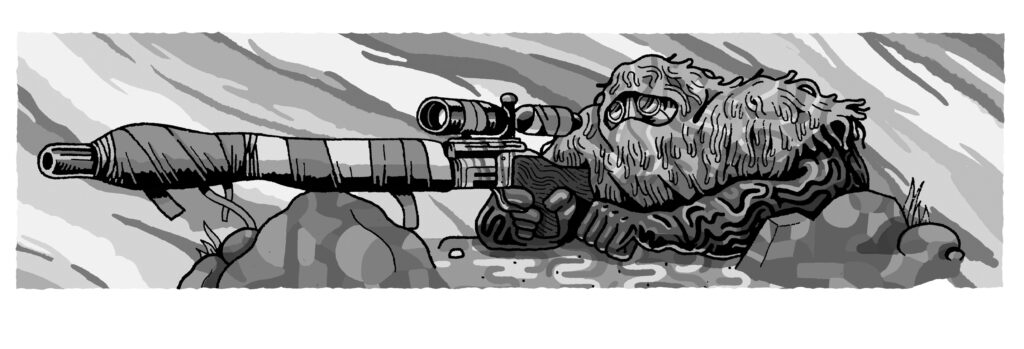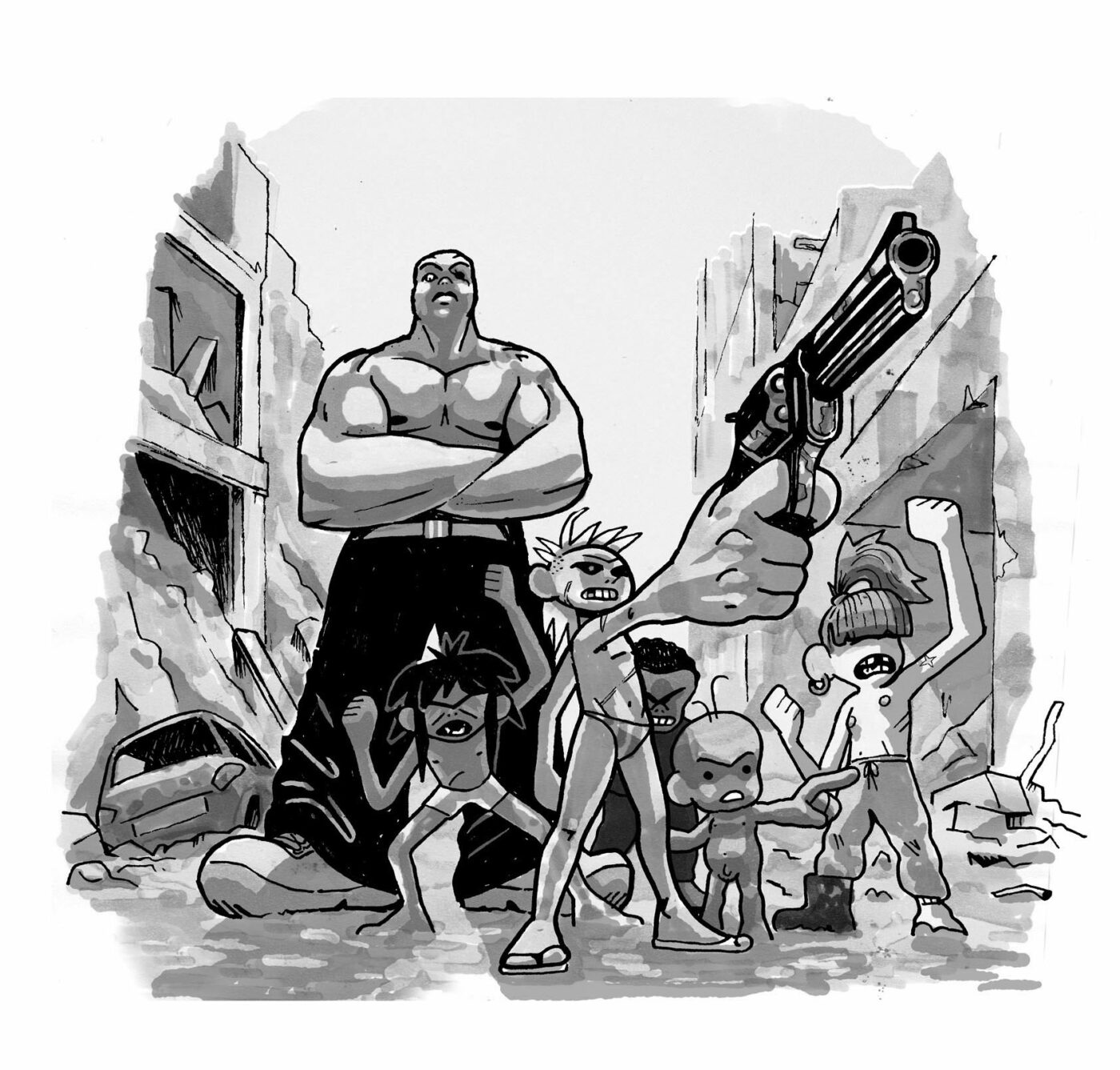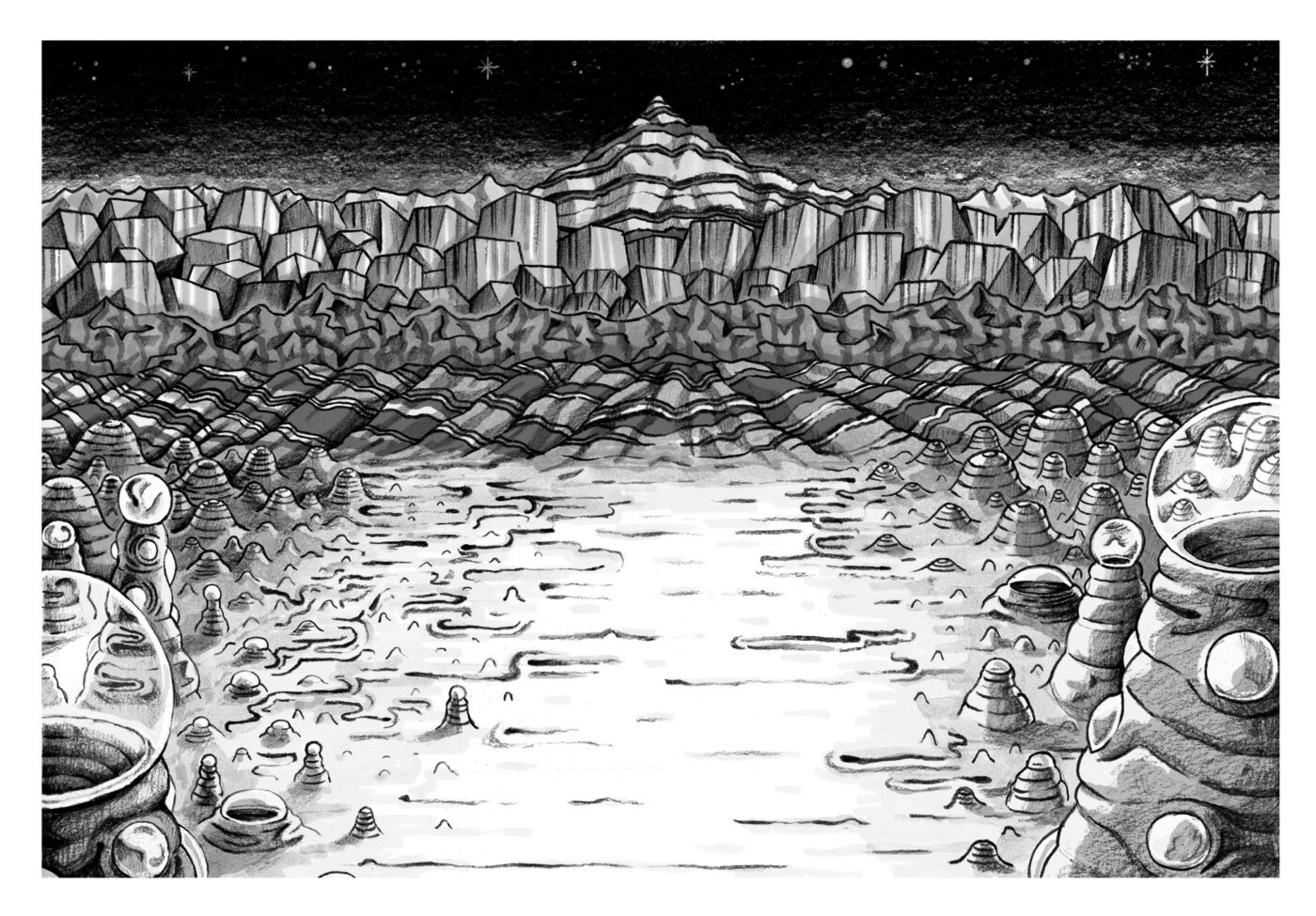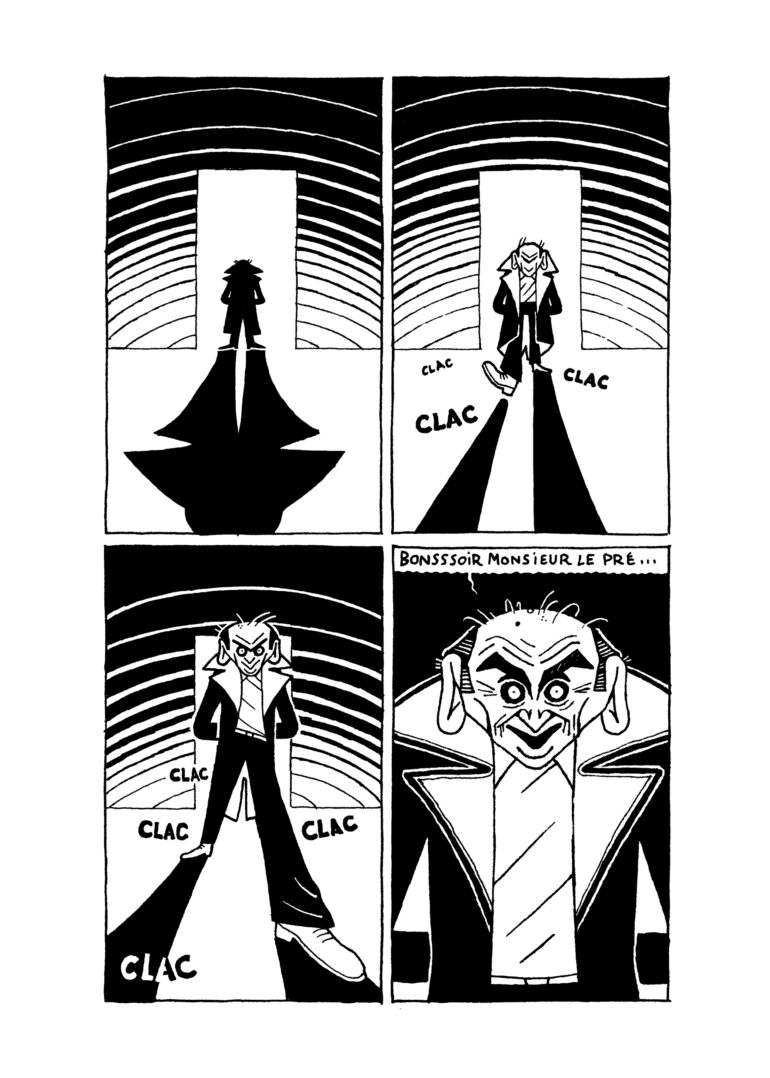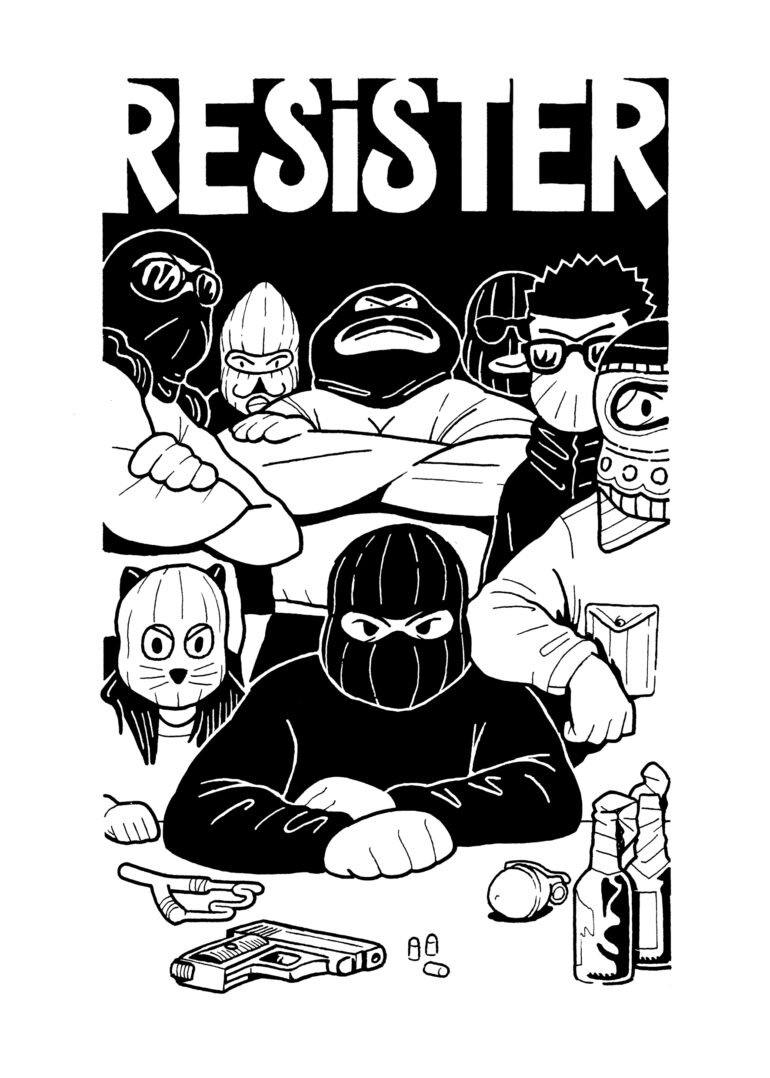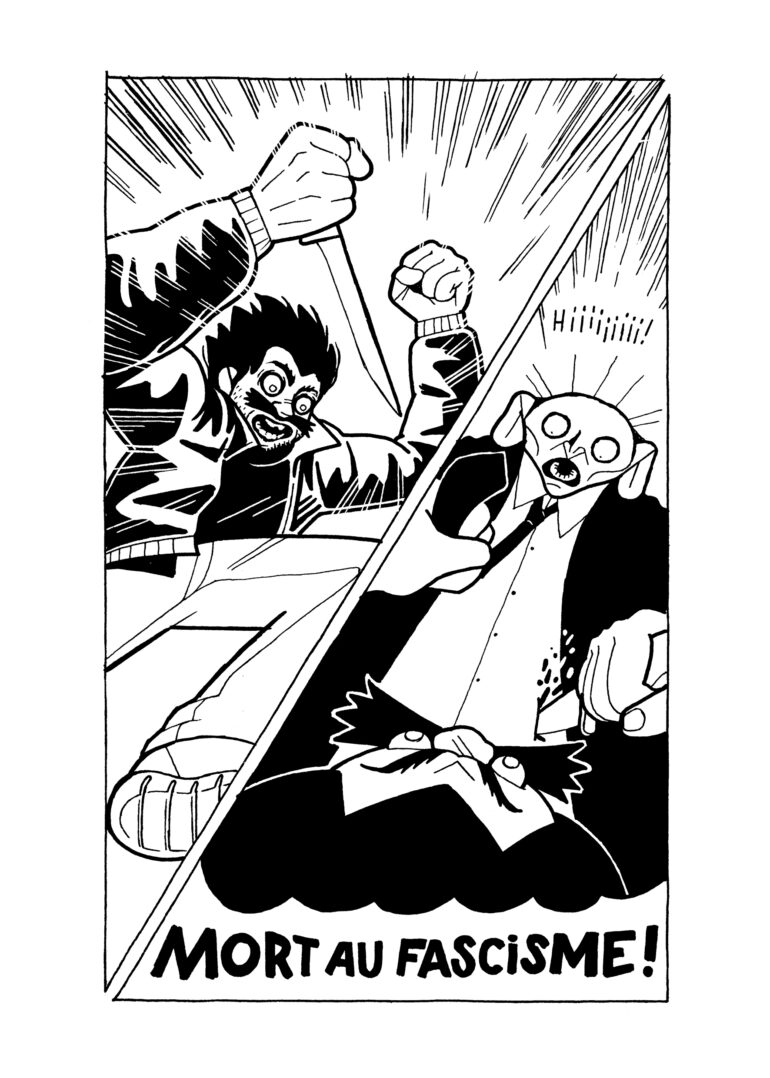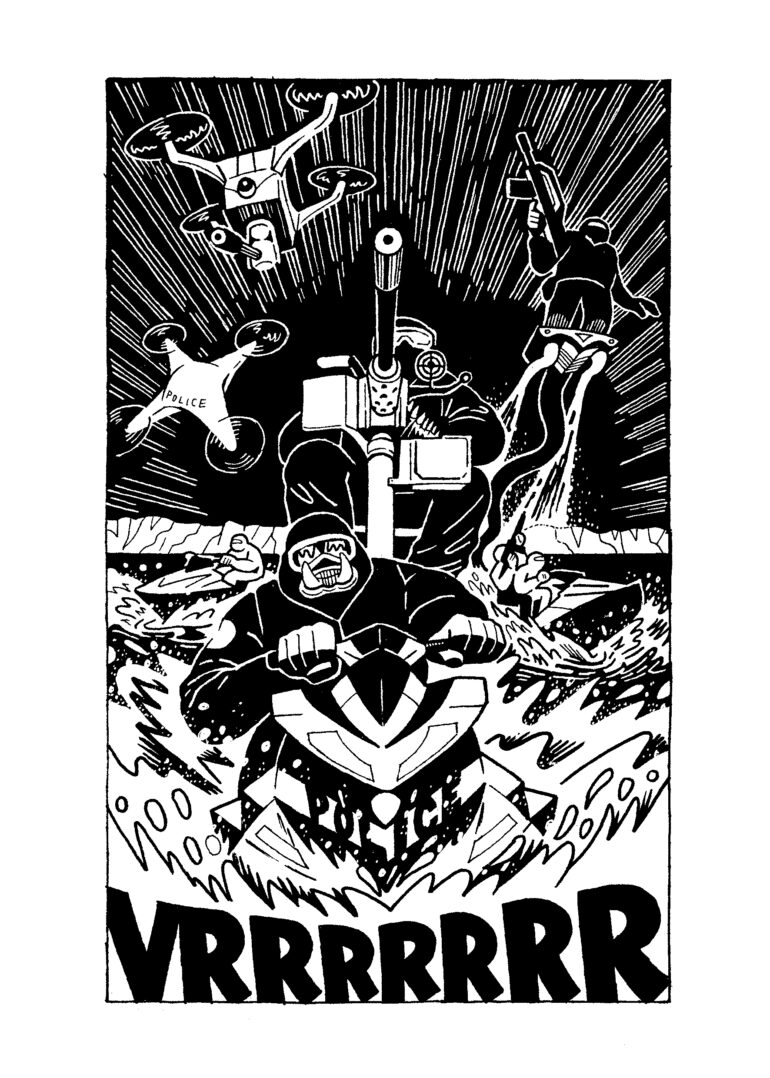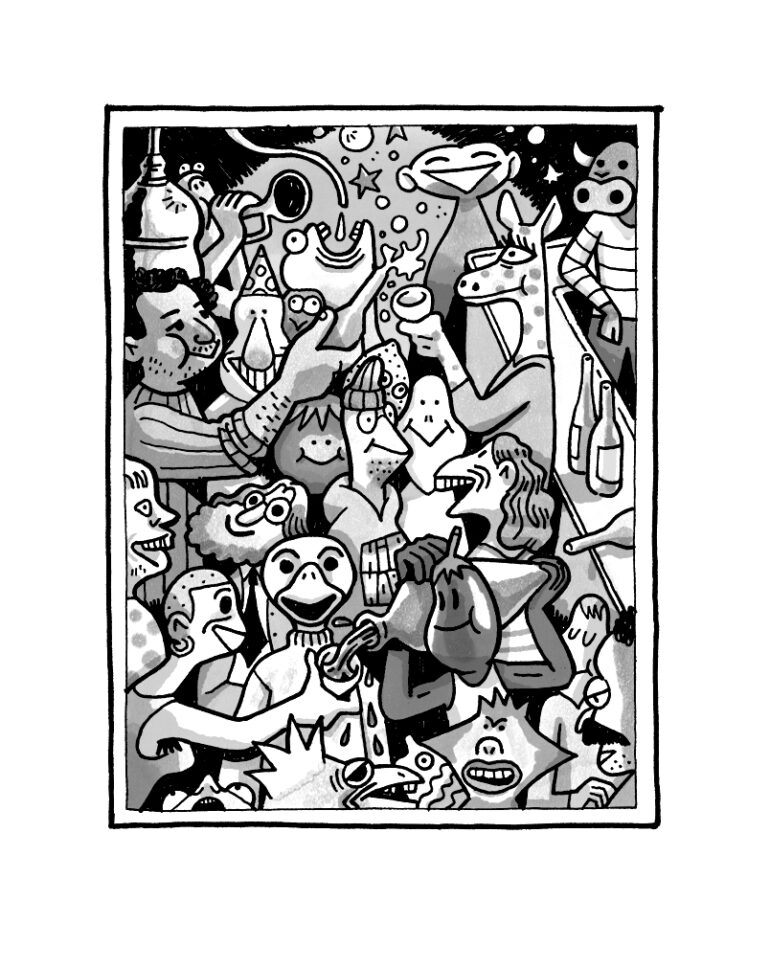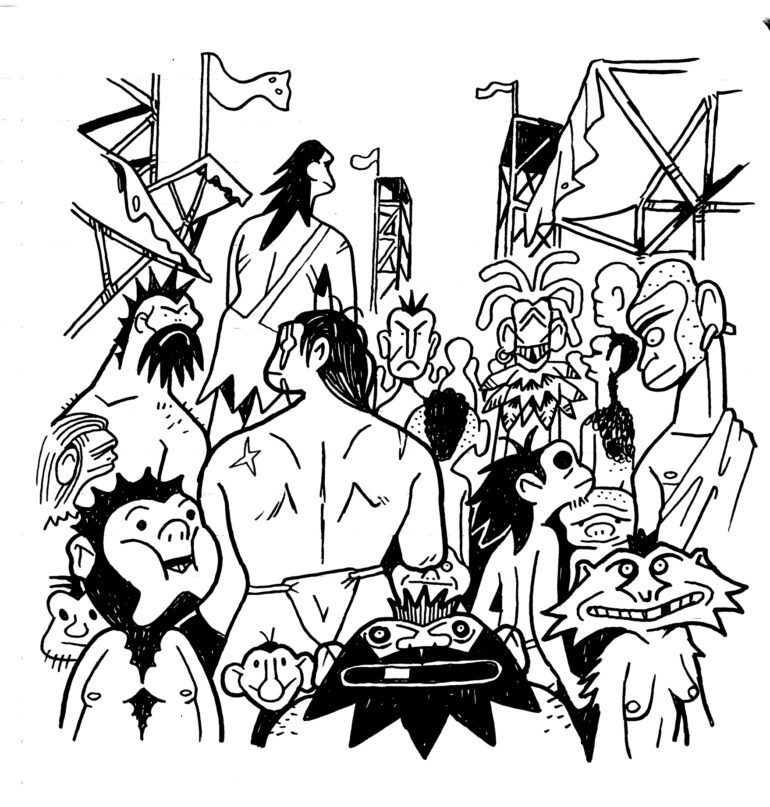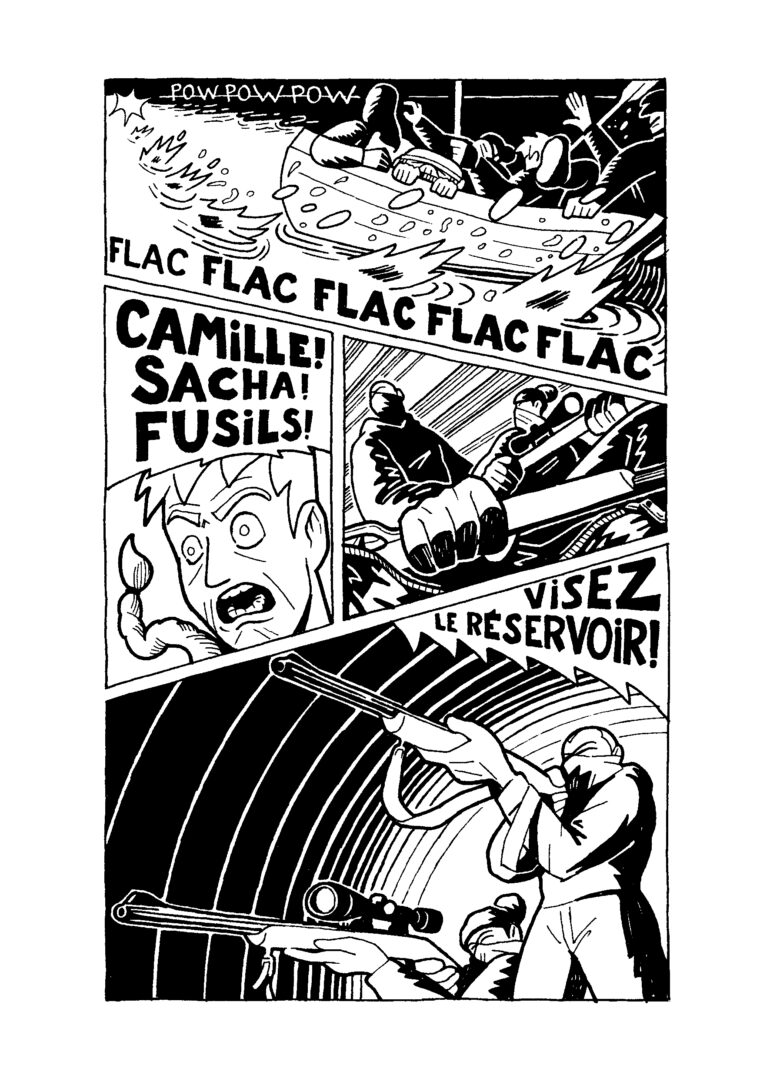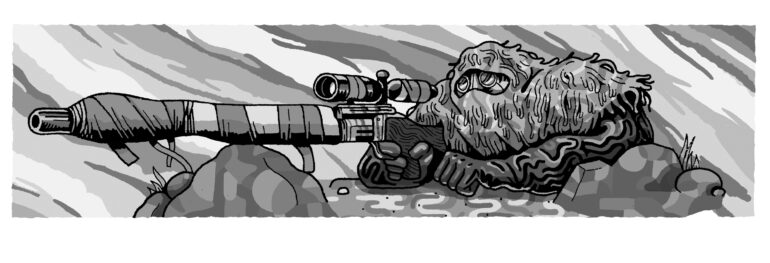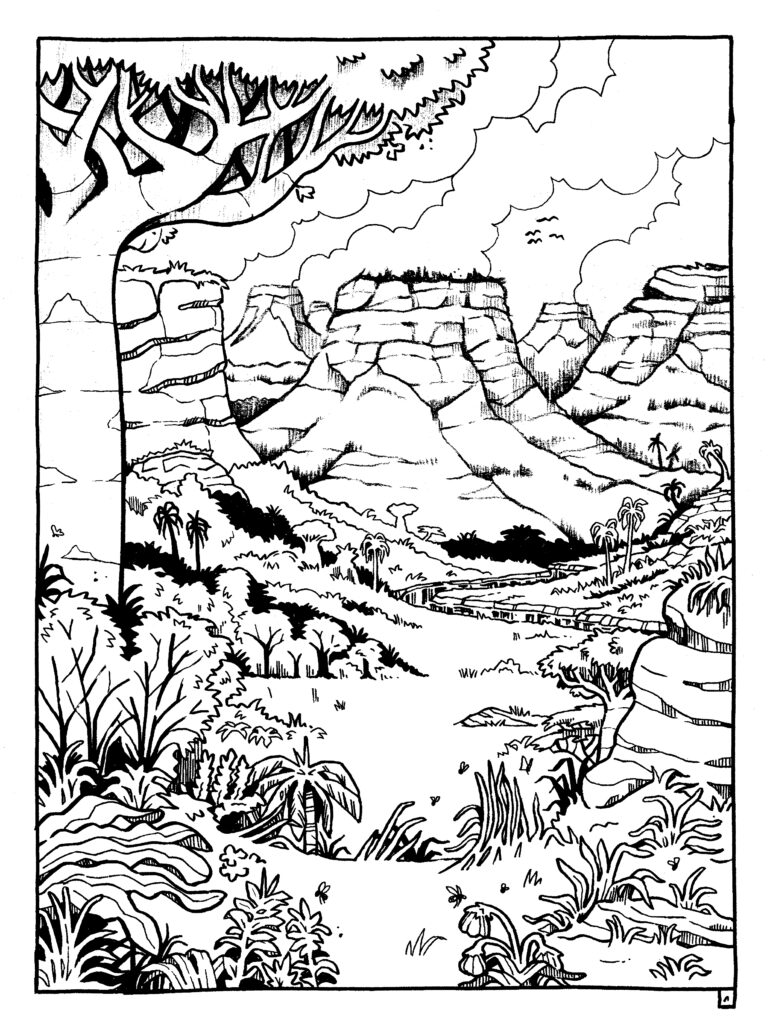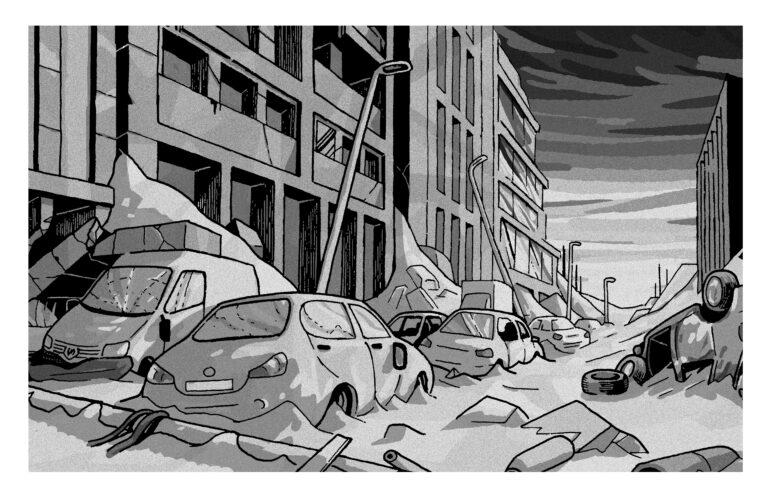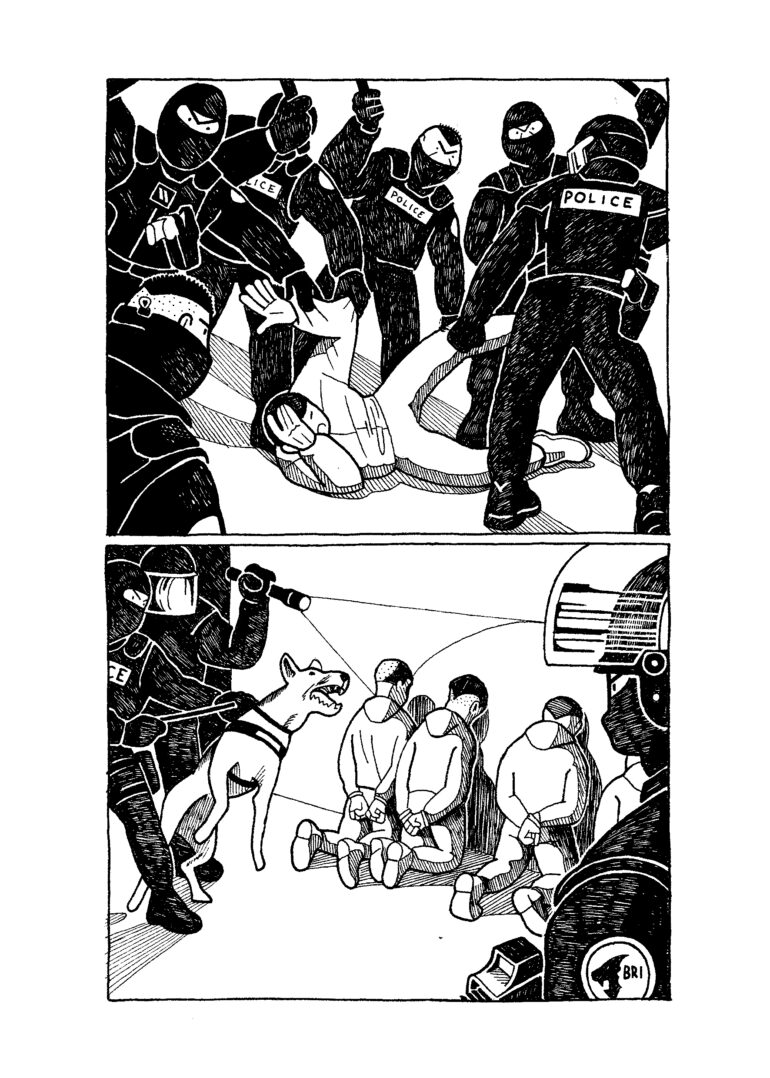PIERRE FERRERO
We discovered Pierre Ferrero though the walls of several squats, all over France. Via strong posters. A clear, colorful, direct, figurative drawing, and directly anchored in the anti-reactionnary, anti-authoritarian and anti-fascist fight. We could only love it!
During a small walk to the Colomiers comics festival, and we had this same Pierre Ferrero, right in front of us, in flesh and bones! He was promoting his latest book: “Cauchemar” (Nightmare; ED), a little gem of “post-anticipation” taking place in a very ugly France, emanating from Zemmourist (French alt-right mentality ;ED) overtones. Our present in short. His next projects will explore a much more distant future. Thanks to him for the cover, a superb foretaste of those bright tomorrows…
| By Polka B. | Translated by NinoFutur

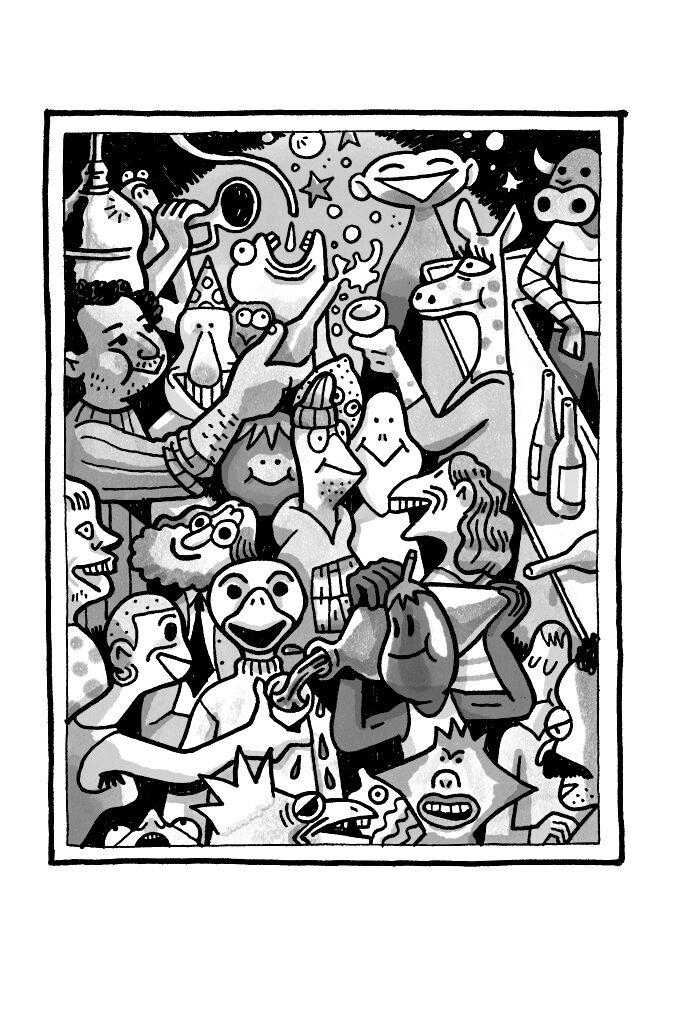
How did you start drawing?
What were your sources of inspiration as a child?
I have always drawn. Most children draw, and often it is at the turn of adolescence that we stop. I never stopped.
My father had a large collection of comics, his mother and his aunt were secretary and typist at Dargaud (famous French comic book editors; ED) and as a result he always had a lot of comics. So I was reading it when I was very young. All the very classic stuff (Asterix, Lucky Luke, Tintin…)
Later, around my 9 years old I would say, I discovered Dragon Ball, it was a little slap in the face. Generally speaking, I liked things that were a bit heroic fantasy, or dealing with skeletons and monsters…
You joined a drawing school.
How did you felt with this experience?
After high school, I didn’t really have any idea of what I wanted to do. During a trade fair in Lyon during my final high school year, I walked around this huge thing, and there were art school stands and I said to myself that it seemed like a good idea.
I joined a school which offered very traditional practice, centered on drawing, techniques, and color. For example, you could have 16 hours of observation drawing lessons, using charcoal. And you must perfectly reproduce what you observed.
What attracted me the most was this thing about learning, of being able to have enough technique to draw whatever came into my head.
I am very critical of the policy of this school however, it’s still a private school, very authoritarian. And what kept me going was meeting other people with whom we created the Arbitraire collective. I don’t regret thisexperience, there were great teachers, but the hyper-competitive madness stuff… not for me.
You actually co-founded the Arbitraire collective in Lyon in 2005. Can you tell us more about it? What was your vision of comics?
At the beginning of my studies, I met Renaud Thomas (author, editor, screen printer). I was wearing a Ramones shirt one day and he came up to me and said “great Ramones !” and I was like, « wow! » Someone who knows and listens to punk rock! From there we became friends, and we started to form a whole small group who shared the same tastes of reading, music and stuff, and who were out of step with the school spirit.
We were in mutual help where the school pushed individualism and competition. We met in the evening to drink, watch underground films, exchange comics, make comics, go to concerts, notably at the Grrrnd Zero (Lyon’s famous alternative club ; ED). We were influenced by the American underground of the 70s, the punk of that time, the idea of freedom and non-conformism. We read and we wanted to make alternative, provocative comics. Very quickly we compilated our little comics in a fanzine. Black and white photocopies, staples and here we are. Well when I reread the things I did at that age (19)… I’m not very proud of it. But this meeting was decisive I think, we all learned from each other, we all worked on our own curiosity.

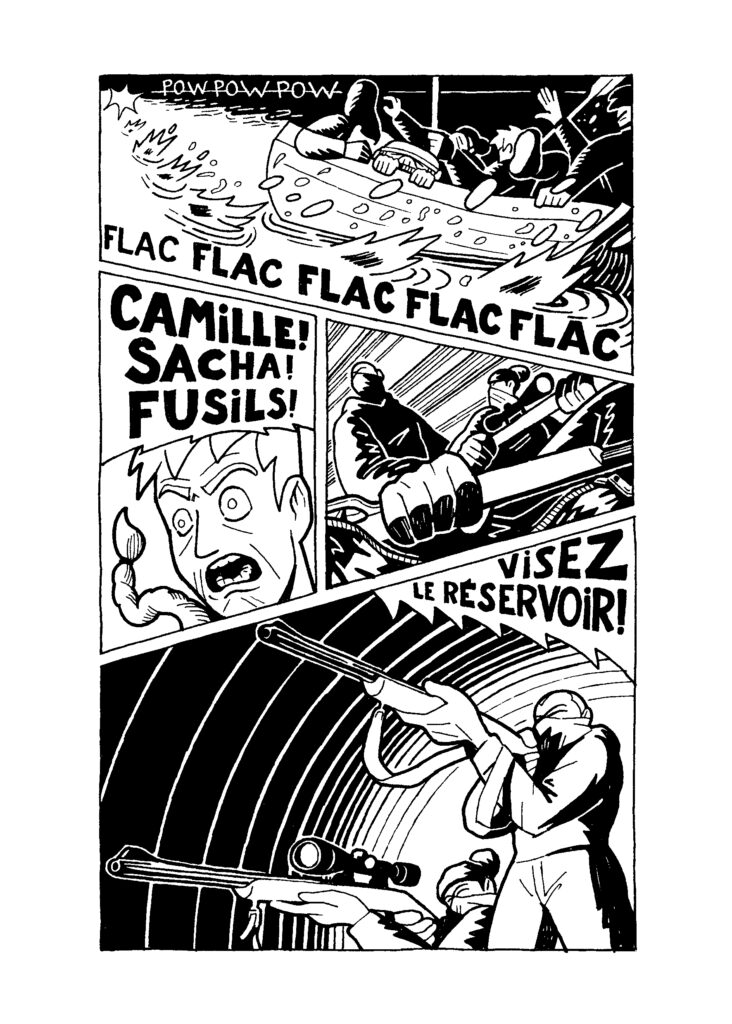
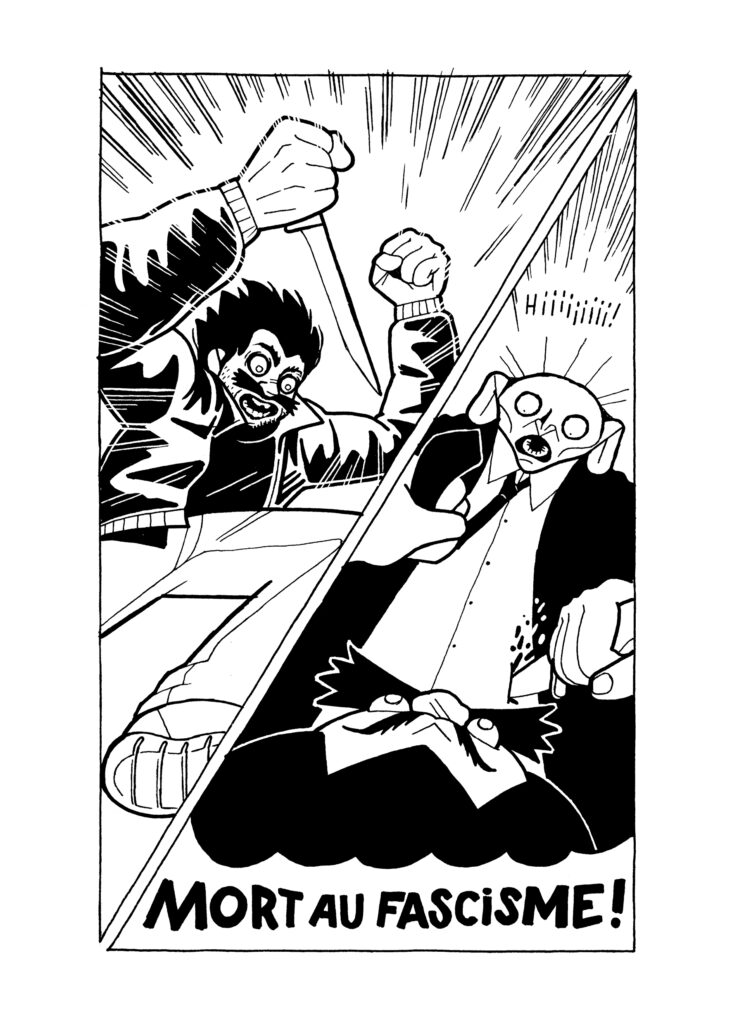
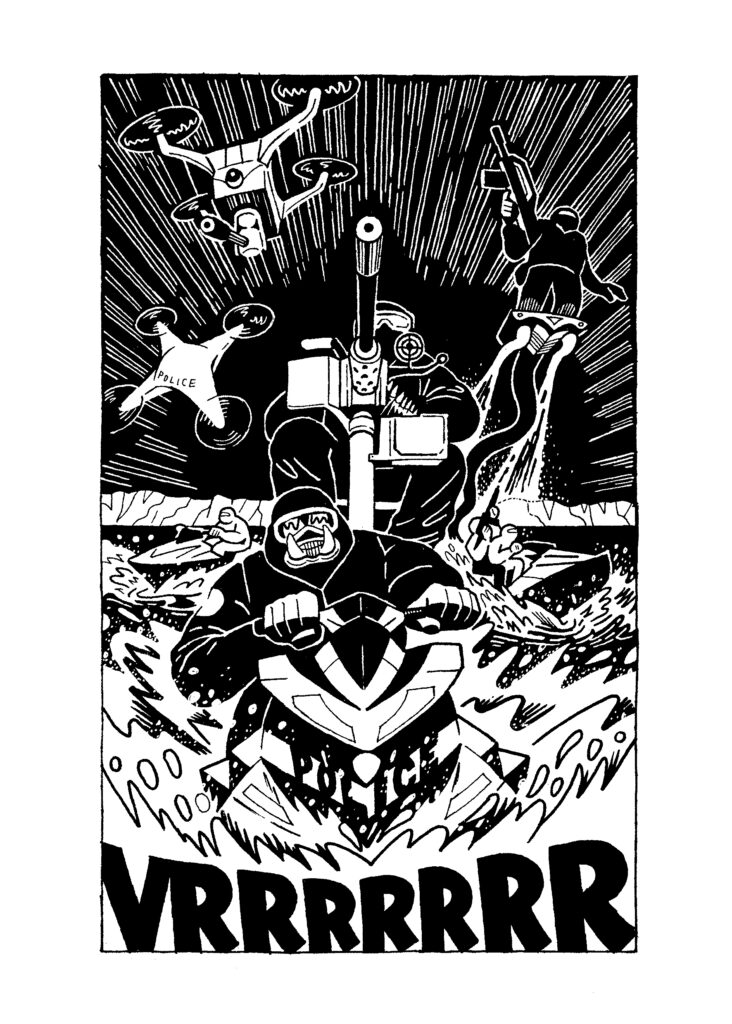
How did you get into screen printing? Is it another artistic universe for you, or do you see it as an extension of your own productions?
Once again it was Renaud of Arbitraire, who always had curiosity and culture, who introduced me to screen printing. Arbitraire was about it, you guess that it was not the school that brought the fanzine culture or introduced us to different printing methods.
And so Renaud knew the work of Le Dernier Cri, (screen printing publisher in Marseille) and it was a huge graphic slap in the face when I discovered that. There was something very punk about the content and the form. Renaud did his study apprenticeship there, he came back with the technique, and therefore introduced us to this printing method.
He joined Black Screen, a small self-managed screen printing workshop located in the Luttines in Lyon. Later, he allowed me to join the workshop. At that time, it was really an extension of my practice. I had a garage punk band and we screen printed record covers, t-shirts, posters… I still do it but more sporadically.
We remember your books Vers de Nouveaux Paradigmes Galactiques (with Isaac Neutron) and La Danse des Morts, both published by Les Requins Marteaux. And we noticed that you have changed your drawing style a lot! As if you had refined your lines and your compositions… What do you think?
There was a moment when I moved towards the deconstructing what school had taught me, to move away from the figurative and towards the abstract, particularly after the discovery of raw arts (thanks to Renaud once again!). I wanted to work on new lines.
But I came back from it a little, for several reasons. I had a small down period around 2018, which lasted 2 years. I no longer read any comics. I didn’t draw much anymore. And I told myself that I had little knowledge of Japanese comics. So I remedied that by reading a lot of classic mangas. It motivated me again. My lineage was greatly influenced by these discoveries.
My drawing will continue to evolve throughout my practice. It’s not something permanent.

With Cauchemar (Nightmare), you created a very political book. Clearly anchored in current affairs with a global denunciation of the rise of an uninhibited far right in France, including at the top of the State. How did this project get started ?Comment est-né ce projet ?
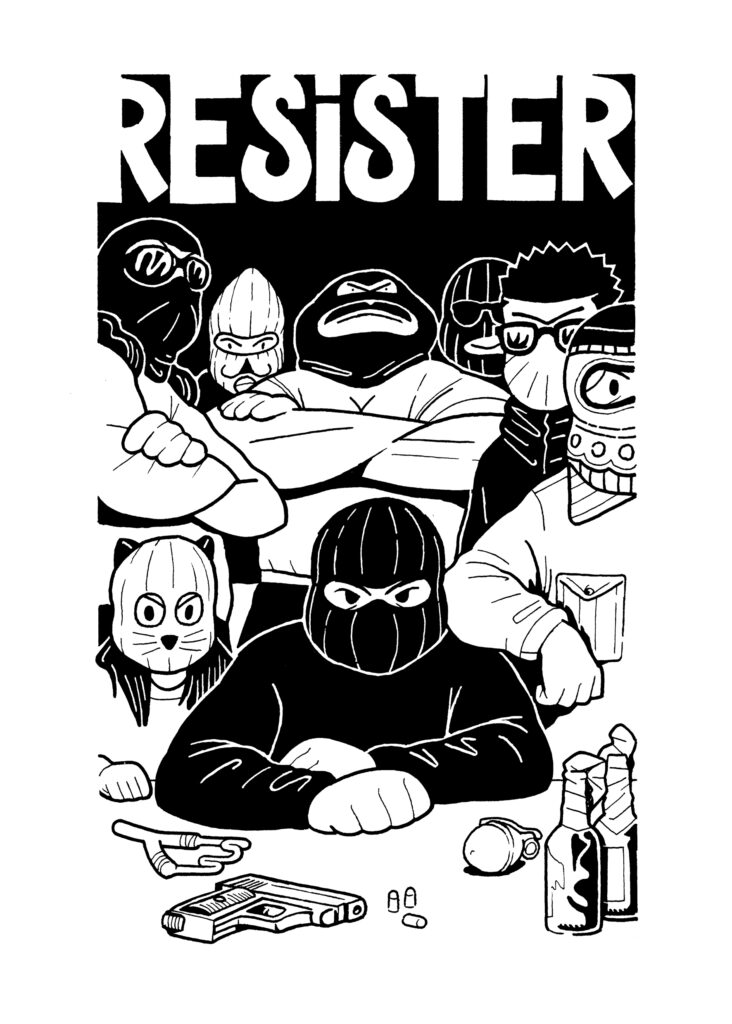
So it’s funny because during a meeting (with my editor Matthias and my friend June Misserey) someone underlined what you said and another person replied that the political aspect was already present in my other books.
What changes I think is the much more frontal aspect. I always had a “political conscience”. Concerning me, it was born at the time of the G8 in Genova. I remember the death of Carlo Giuliani and the big impact this had on me. I was 15 years old, and then during the demonstrations against Le Pen in 2002 with friends we went out. It strengthened me. But it got a little dull over time.
In 2013, when Clément Méric was killed by a Nazi, then a year later when Rémi Fraisse was killed by the State, it awakened something. This was amplified during my short stay in Paris (I lived there for 3 years). The « Law on work » scandal, refugee/migrant camps, the Théo affair… I got very “involved” at that time.
Then, I went to Briançon (the town where I am from) and it became the scene of a manhunt. There was a lot of action.
When I left Paris to go to Corrèze, I think that everything I had consumed in terms of violence, of political understanding, finished macerating… and I vomited it up. For Nightmare, I imagined a 60-page comic book. And now it takes 400. I really needed to get some things out I think!
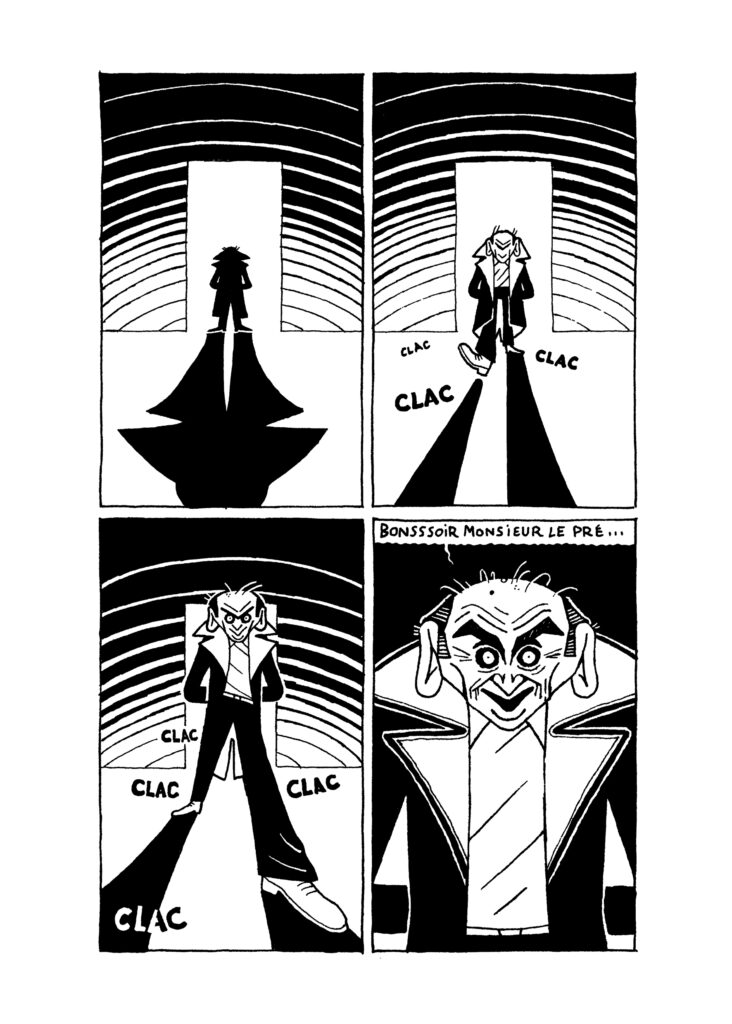
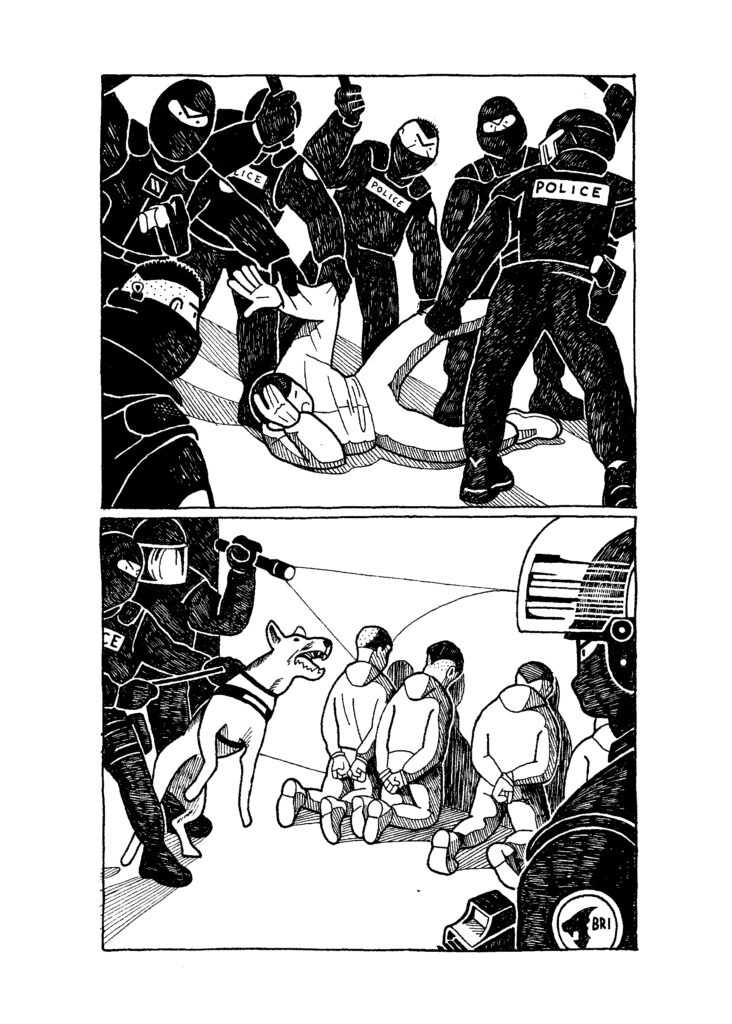
Why did you want to sign your work in a much more politicized treatment?
There was a desire to lest off steam. To assume what I thought, what I did, what I wanted. Nightmare is “post-anticipation”. I try to imagine a future so near that the dystopian elements imagined in the book are quickly outdated.
For the story that I will soon be working on, I want to continue working on this political dimension but in a future universe. A much more distant universe close to SF. I also began to imagine a story that would take place in medieval times but with a religion and authority criticism. I will also give a look to anti-Semitism at this time and its outbreaks, during plague epidemics.
In the book, you integrate elements of fiction (such as the resurrection of the dead Pétain Marshal), to talk about the present, mark your scenario in reality and criticize its excesses. How did you develop this idea that makes your work so special?
It started from the slogan “Pétain come back, you’ve forgotten your dogs”.
I imagined this slightly stupid thing of the mantra slogan which really brings Pétain back. And when he came back, he said to himself, “Hey! In fact, It’s quite nice here ! » Well, between the time I imagined all this (end of 2018) and now, all kinds of unfriendly people have tried to rehabilitate it.
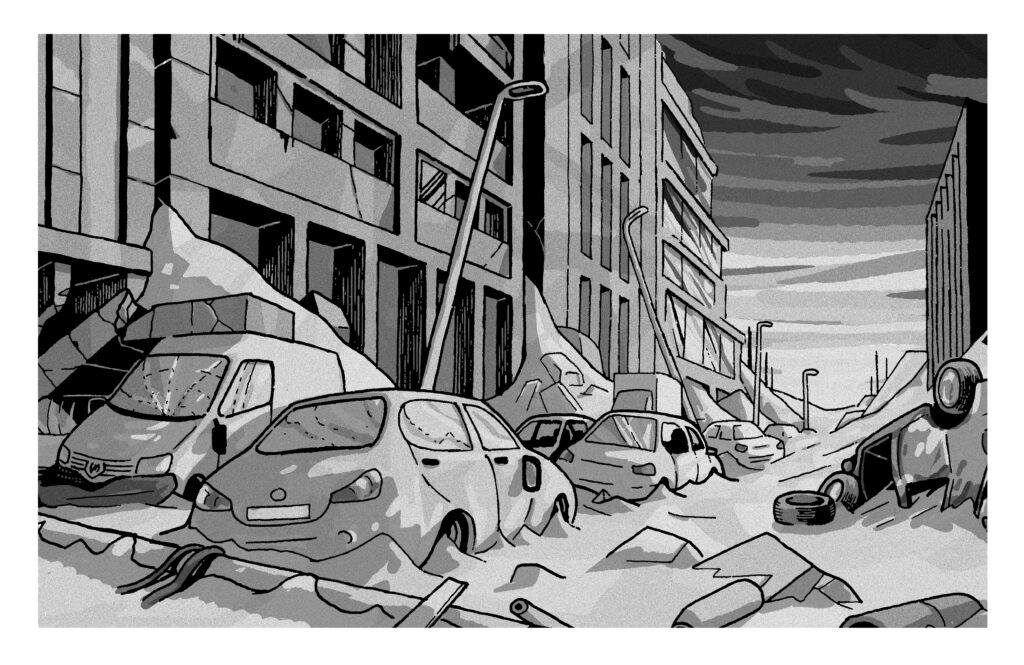
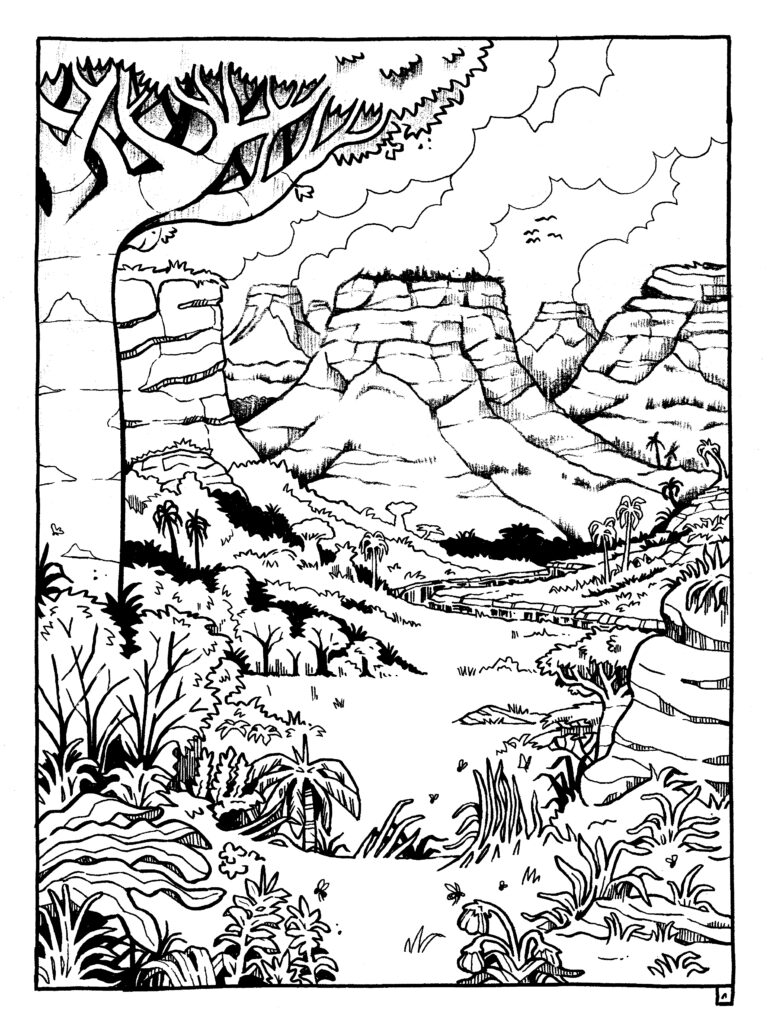
Do you see humor as a weapon to convey messages more efficaciously?
I don’t know. This is a question that often comes up during interviews. I was asked if my pencil was a weapon.
My answer is that a weapon is a weapon. And that my pencil or humor can serve as a medium or vector for ideas or sensations, but I have little control over the readers’ reception. My primary desire is not to convey a message, rather to relieve myself of something.
Personally, do you see Cauchemar as an “activist” work? What does this term mean to you?
No. I really didn’t want to do that with Cauchemar. It’s mostly a story.
In addition, I am circumspect with the word “militant”. I think it attracted me at some point, and when I was alongside “real” activists, it freezed me a little. This must surely come from what this word carries in its etymology.
The book was published by L’Employé du moi in 2023. We say that the scope of the work has gone beyond the (sometimes confidential) distribution of the fanzine, to reach many more people with different profiles.
You had any negative feedbacks? Violent or unexpected reactions?
No, no negative or violent reactions. (Well not yet)

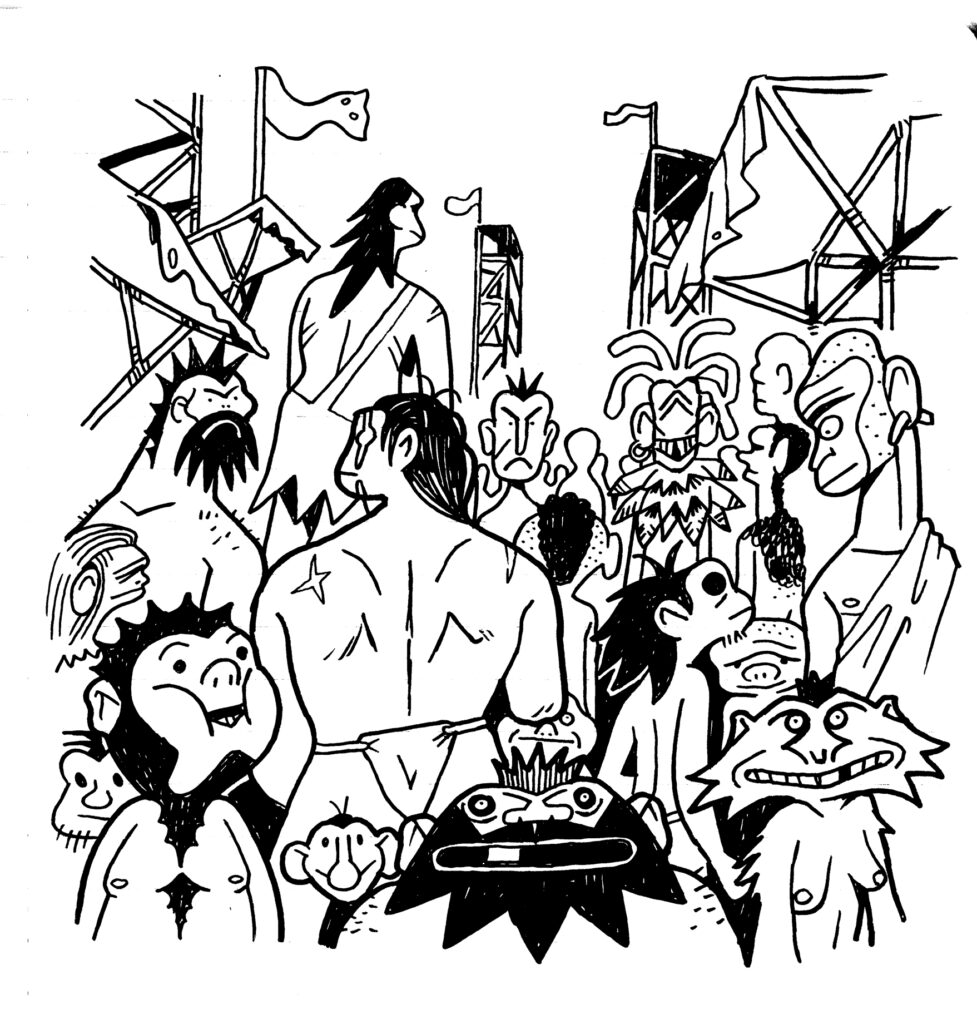
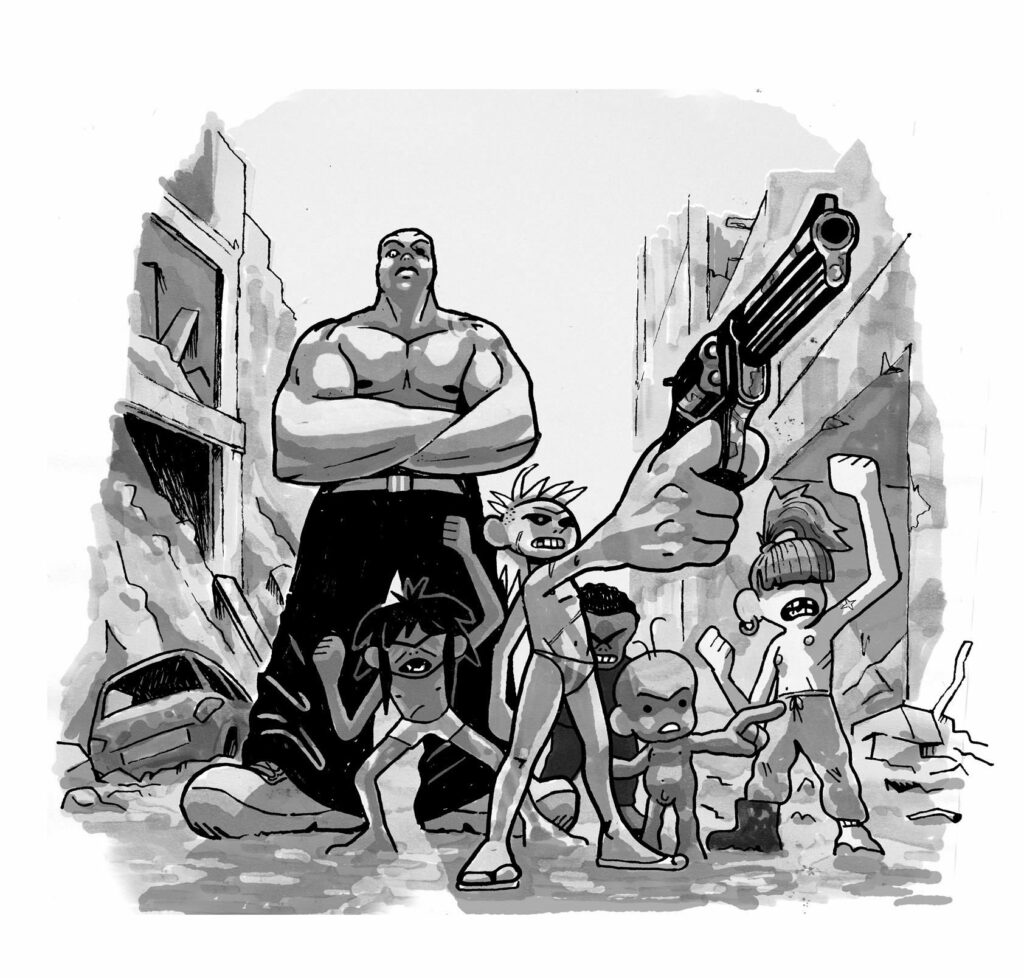
What are your plans for the future?
I’m working on a comic book with a screenwriter and an editor, it’s a mix between a ordered work and my author’s job.
But as soon as I have finished, I will get back to my work as an author, and as I said previously, I will work on a SF story, post-collapse, to echo utopia/dystopia.
It will be called « Ruines » (Ruins).
What are your “dreams” as an artist?
I don’t have much ambition other than being able to continue drawing, and see my line evolve.
Can you leave us with 3 tracks that you are listening to at the moment?
So, I had a big comic book reading phase at one time. At the moment I have a music stoppage. I don’t listen to much music… I’m coming back to the various things I listened to before. I can leave you with some tracks that I have listened, while finishing Cauchemar:
Casey – Le fusil dans l’étui
Oi Boys – Déjà Reine
Idles – Mother
